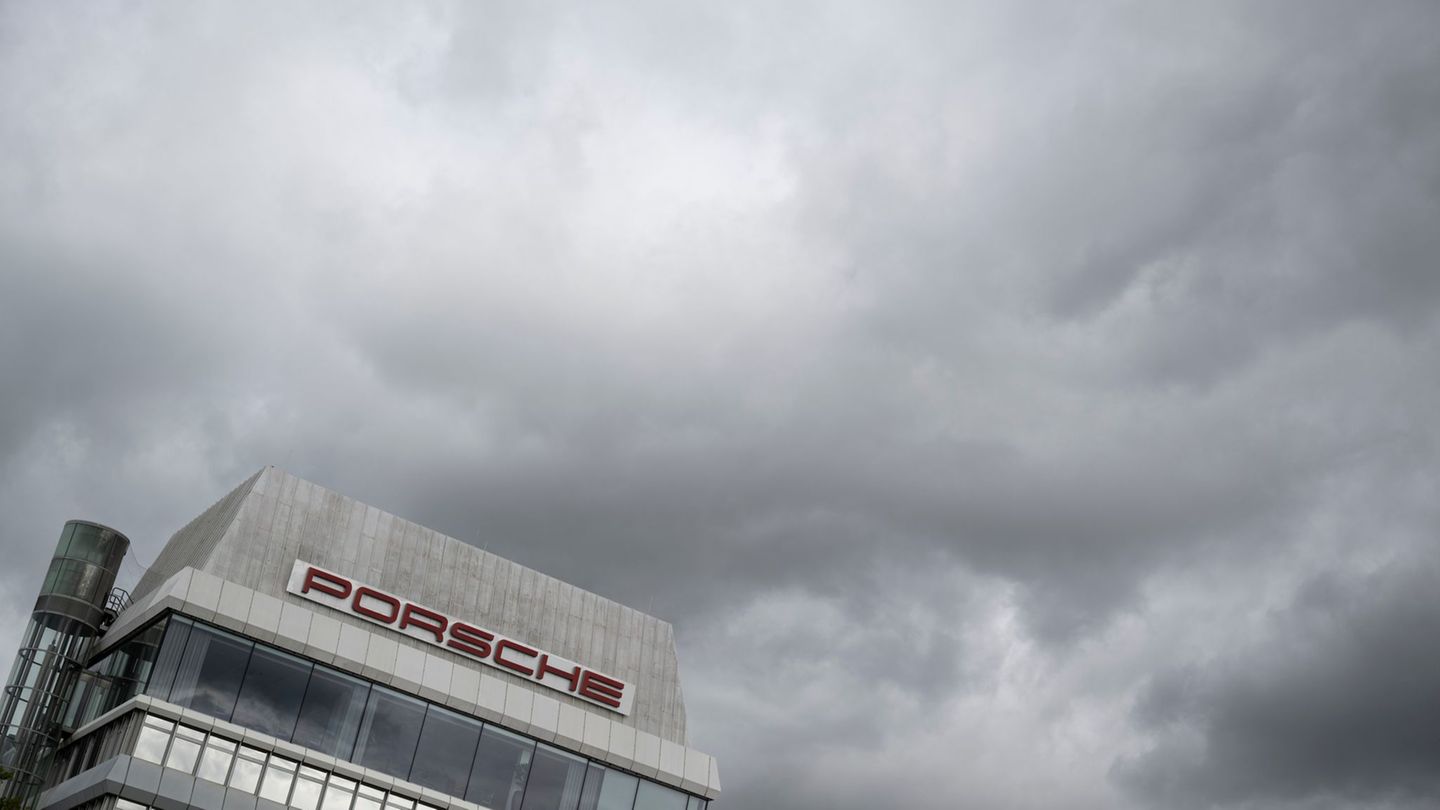Because of a change in strategy
Sports car manufacturer Porsche reports a 95.9 percent drop in profits
Copy the current link
Add to watchlist
Sluggish sales in China, combustion engine comeback, change of boss: Porsche has not been able to calm down for months. Now the former profit giant in the Volkswagen Group is even reporting red numbers for a quarter.
The billions in costs for the combustion engine extension almost completely wiped out the profits of the sports and off-road vehicle manufacturer Porsche in the first three quarters. Earnings after taxes fell by 95.9 percent year-on-year to just 114 million euros, as the company announced. From July to September, the Stuttgart-based company even reported red numbers: Earnings before interest and taxes (EBIT) were minus 966 million euros. In the same quarter of the previous year there was an increase of 974 million euros.
The main stress factor is the management’s shift in strategy around the current Porsche boss Oliver Blume: Recently, the ambitious electric targets were canceled – and the planned battery production with them. The launch of new electric models has also been postponed. In view of the “market realities and customer needs”, the aim is instead to achieve a comeback of the combustion engine well into the next decade. The measures cost a lot of money: special costs of around 3.1 billion euros are expected in the 2025 financial year, it was said.
Low point soon to be overcome?
The operating profit in the first nine months was 40 million euros – 99 percent below the previous year’s figure of a good four billion euros. Sales fell by six percent to just under 26.9 billion euros.
According to CFO Jochen Breckner, the results reflect the burdens of the strategic realignment: “We are consciously accepting temporarily weaker financial indicators in order to strengthen Porsche’s resilience and profitability in the long term.” However, the manager was confident: “We expect that we will pass the low point this year and that Porsche will noticeably improve from 2026.”
In the recent past, the Stuttgart-based company has mostly raced from success to success – and for a long time brought a large part of the profits into the coffers of the parent company Volkswagen. In recent months, however, the sports car manufacturer has become a company in crisis mode.
Problems: China, USA and e-mobility
In addition to the slow ramp-up of electric cars and US tariffs, Porsche also has problems in day-to-day business. The sports car manufacturer is heading for its second year of negative sales. A good 215,500 vehicles were delivered from January to September. Six percent less than a year before.
In China in particular, things went significantly worse. In the first nine months of the year, the Swabians sold almost 32,200 cars in the People’s Republic – around 26 percent less than in the same period last year. Porsche had already had to give up in the country. For comparison: In the same period in 2022, the group sold a good 68,700 vehicles there with total sales of around 221,500.
“The luxury market has completely collapsed in China,” Blume said recently. As a result, a quarter of Porsche’s previous total volume is no longer available. Blume, who has also led Volkswagen since September 2022, will be at the helm of the sports car manufacturer until the end of the year. He then moves completely to Wolfsburg. At the beginning of 2026, former McLaren manager Michael Leiters will take over the Porsche boss position.
In view of the economic problems, Porsche has to take action – and its structures are shrinking. By 2029, around 1,900 jobs are to be cut in a socially acceptable manner in the Stuttgart region. In addition, the contracts of around 2,000 temporary employees are expiring.
Another savings program is to be put together in the coming weeks. Negotiations are currently underway with the works council. Breckner went on to say: “We have to assume that the general conditions will not improve in the foreseeable future. That’s why we have to talk about far-reaching approaches in all areas – including in the context of the future package.”
According to dpa information, in addition to additional job cuts, job security is also likely to be under discussion. The company and the works council want to provide information about the results of the discussions once they have been concluded.
dpa
Source: Stern




